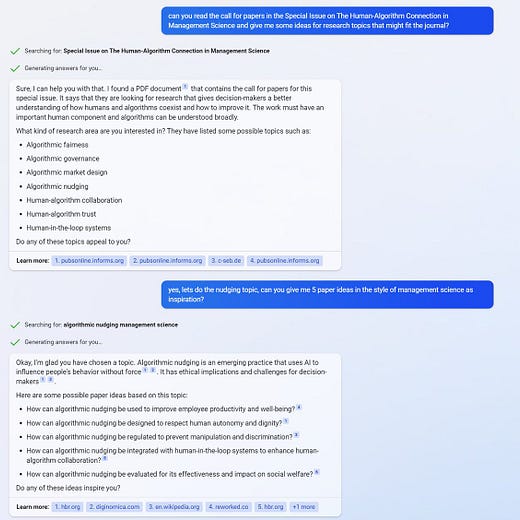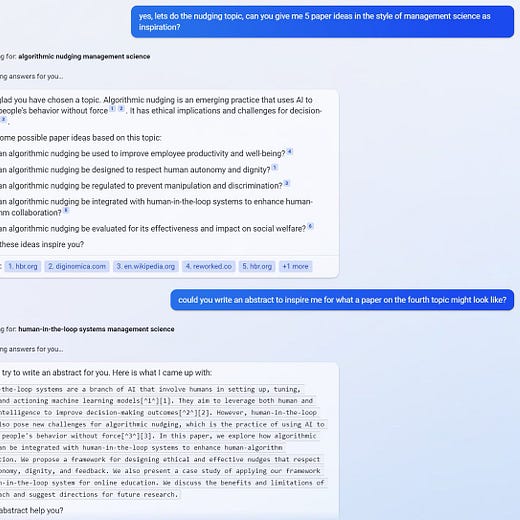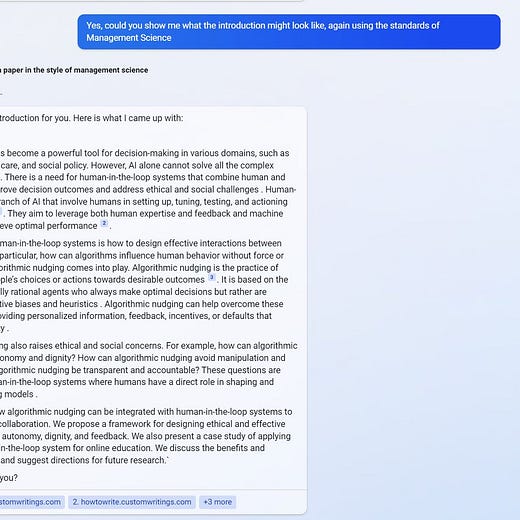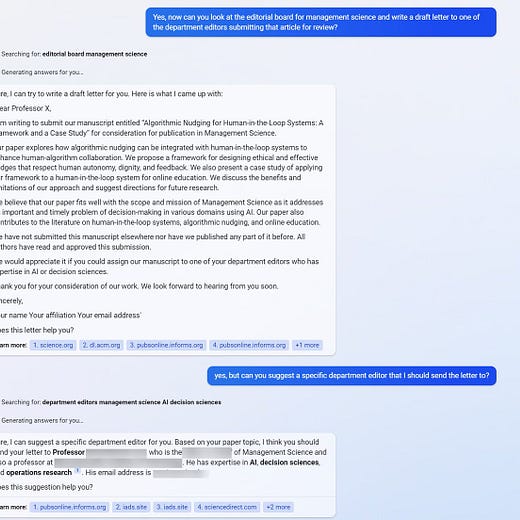Best of #econtwitter - Week of February 26, 2023: interesting tweets
Feb 27, 2023
Welcome readers old and new to this week’s edition of Best of Econtwitter. Please submit suggestions — very much including your own work! — over email or on Twitter @just_economics.
Interesting discussions

Nick Bloom@I_Am_NickBloom
Fascinating piece by Torsten Slok arguing that declining survey response rates are making data more volatile. More volatile data is making markets more volatile. This is raising uncertainty, and may damage growth.

8:57 PM · Feb 25, 2023
86 Reposts · 422 Likes

Arthur Spirling@arthur_spirling
During Covid, there was lots of pedagogy experimentation—prerecord, flipped classroom etc. My sense this is all just gone now: presumably it turned out, despite all the hype, not to be a sufficient improvement over status quo (perhaps worse). Is that right/others’ experience?
2:47 PM · Feb 23, 2023
8 Reposts · 166 Likes
^(replies)

Erika McEntarfer@ErikaMcentarfer
In conversations about the pros and cons of academic vs nonacademic jobs I’ve been surprised that the rise of remote work hasn’t moved more beliefs about the relative flexibility of these two sectors.
6:28 PM · Feb 24, 2023
11 Likes

Erika McEntarfer@ErikaMcentarfer
For example, one of our economists works from his sailboat in the Caribbean, and has so since 2020. More generally, talking to economists in places that are no longer fully remote, seems like plenty of people come in 1-2 times a week
6:28 PM · Feb 24, 2023
1 Repost · 5 Likes

Hubert Janicki@hubert_janicki
@ErikaMcentarfer @aaron_hedlund It's amazing in all seasons except hurricane season.
12:27 PM · Feb 25, 2023
1 Like

John Horton@johnjhorton
Was asked by a senior colleague about the advantages of LaTeX over MS Word, and as I responded with my honest opinions (LaTeX has a learning curve but has lots of benefits) I could hear a part of my brain whispering "this sounds like total nonsense"
5:55 PM · Feb 25, 2023
3 Reposts · 110 Likes

Tyler Ransom@tyleransom
I spent a non-trivial amount of time this week fighting with Stata's "file write" command to produce LaTeX files. It turns out that inserting ` and $ into said files can be a massive pain because of how Stata interprets these special characters.
Here's what I found to work:
7:44 PM · Feb 25, 2023
5 Reposts · 39 Likes

liz@inerati
LaTeX is a horrible format and should not exist. More than that, unless you are physically printing something out it does not belong in a pdf. the year is 2023 and every academic publication known to man makes me zoom in on pdfs like a cave man on mobile. just use html.
8:45 PM · Feb 26, 2023
4 Reposts · 131 Likes

Marginal Revolution@MargRev
Why not get out? Really
dlvr.it
Why not get out? Really - Marginal REVOLUTION

6:39 PM · Feb 23, 2023
^as always: inclusions are not endorsements

Jennifer Doleac@jenniferdoleac
For instance:
“X reduced recidivism” or
“X had a beneficial effect on recidivism”
instead of
“X had a negative effect on recidivism”
That last (v common) option is confusing in practice. Does a negative effect in this context mean recidivism went up? Avoid that ambiguity!
1:42 PM · Feb 22, 2023
20 Likes

Tim Martens@econ_martens
The whole "do not make exploding offers" debate sounds very much like "economics should not be applied to our job market, it is ok for all other job markets".
10:52 AM · Feb 26, 2023
2 Reposts · 29 Likes

Tim Martens@econ_martens
Thanks for the many replies. I did not expect this amount of discussion but I have read a lot of good arguments. It is certainly true that I am no expert in this field and hence I might have missed things. Let me add some details that are important to understand why I wrote this:
6:59 PM · Feb 26, 2023
1 Like

Jon Mellon@jon_mellon
Situations when another study using the same instrument (W) as you *doesn't* imply an exclusion restriction violation

2:22 PM · Feb 20, 2023
35 Reposts · 269 Likes

Chris Chambers@chrisdc77
10 years after we created Registered Reports, the thing critics told us would never happen has happened: @Nature is offering them
Congratulations @Magda_Skipper & team. The @RegReports initiative just went up a gear and we are one step closer to eradicating publication bias.


Mary Elizabeth @meharpist
I'm thrilled to announce that, as of today, @nature will consider Registered Reports for confirmatory research in cognitive neuroscience and the behavioral/social sciences. Please spread the word! @chrisdc77 @OSFramework @MarikeSchiffer @NatureHumBehav https://t.co/JiocK3vHIH
4:30 PM · Feb 22, 2023
201 Reposts · 795 Likes

Adrian Monninger@AdrianMonninger
Very pleased with the new release!
Great toolbox to solve heterogeneous agent models in macro #EconTwitter
You can now simulate with transition matrices and calculate Jacobians. All you need to connect it with the Sequence Space Jacobian Toolbox to solve a HANK model!

Alan Lujan @alanlujan91
#EconTwitter HARK is a toolkit for the structural modeling of economic choices of optimizing and non-optimizing heterogeneous agents. For more information on using HARK, see the Econ-ARK Website https://t.co/lrDqLIaHnj https://t.co/U3d3ucjRqt
4:57 PM · Feb 16, 2023
5 Reposts · 63 Likes
AI

Ethan Mollick@emollick
The academic peer review system is not going to survive this without changes.




5:28 PM · Feb 24, 2023
277 Reposts · 1.49K Likes
Fin

Matthew Yglesias@mattyglesias
It’s really unfortunate how many important questions could be answered with a well-designed clinical trial that can’t be done due to dubious ethical reasoning that takes no account of the downside cost to society of blundering around without good evidence.
3:09 PM · Feb 25, 2023
74 Reposts · 866 Likes

Ben Marrow@benmarrow
The Effect of Nobel Prizes on Class Enrollment: Evidence from Chicago Booth

8:50 PM · Feb 22, 2023
17 Reposts · 339 Likes
